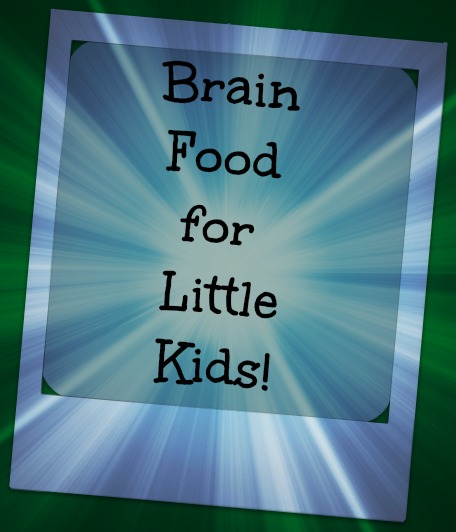Are you feeding your child’s brain? The concept of “brain food” was part of a campaign that was sponsored by the U.S. Department of Education’s “America Reads Challenge” years ago. They had a catchy slogan: Start Early, Finish Strong: How to Help Every Child Become a Reader. One document that was inspired by this reading challenge was Feed Me a Story.
I like the title, Feed Me a Story, because it’s about giving a child what they called “brain food.”
They started with a question, “Does it really matter if I read to my child every day?” And the answer, of course, was YES! The statistics were impressive:
- If reading for 30 minutes a day begins at birth, by the time the child is 5 years old, they have been fed roughly 900 hours of brain food!
- Reduce that to just 30 minutes a week and the child enters kindergarten with just 130 hours . . . No teacher, no matter how talented, can make up for those lost hours of mental nourishment.
Homeschooling parents of young children are probably going to be spending way more than 30 minutes a day giving their children brain food! What we are doing with our children every day is so vital to their future, and that’s encouraging news.
Feed Me a Story emphasized that parents didn’t need to spend the entire 30 minutes reading, nor did it have to happen all at one time. They could also do things while getting dressed, eating, riding in the car, or doing chores. Read just one story a few times a day, and also consider the following to increase your minutes each day:
• Sing a good morning song (What a heartwarming and loving tradition to start the day!)
• Talk about the clothes your child will wear (Do you want to wear a red or purple shirt?)
• Check the thermometer to see what the temperature is (Use it to decide what to wear, predict snow, and more!)
• Play “This Little Piggy” while putting on socks (Play with language and give your child special loving attention)
• Play teaching games like “Simon Says” (Simon says, “Touch your nose. Simon says, “Touch your knees.”)
• Get silly with rhyming words. (Read Dr. Seuss’ Hop on Pop for ideas.)
• Sing songs together. (I like singing rounds and playing patty cake too, since they are loads of fun and more challenging!)
• Keep a book handy for times when you are waiting, or talk about when you or they were young.
• Read, sing, or talk during bath time.
The major point is that a minute here or there spent reading or talking to a child every day from birth on has a major impact on his learning because all those mini-moments really add up.
They didn’t suggest teaching a young child the alphabet or giving worksheets – just reading, singing, and talking. It’s fun, it’s easy to fit in to a busy day, and it makes a big difference.
Originally published at UniversalPreschool.com.
 Karen Taylor’s always homeschooled son attended a local community college after graduating from homeschooling. He transferred to UC Berkeley as a junior, and received a PhD in neuroscience from UCSF. She shares homeschooling comments and links on Facebook, Pinterest, and this blog.
Karen Taylor’s always homeschooled son attended a local community college after graduating from homeschooling. He transferred to UC Berkeley as a junior, and received a PhD in neuroscience from UCSF. She shares homeschooling comments and links on Facebook, Pinterest, and this blog.





